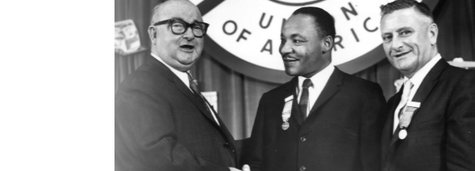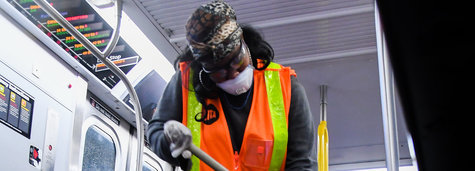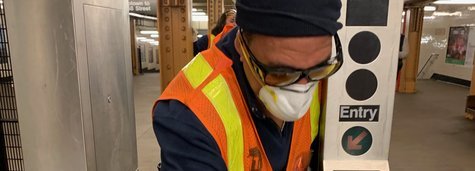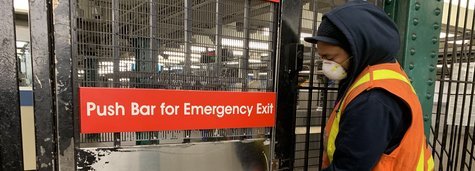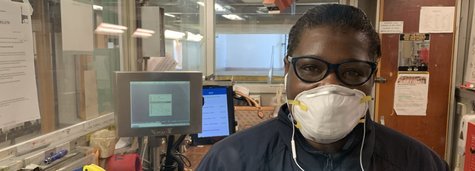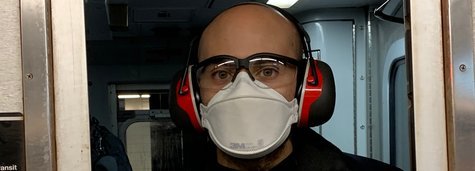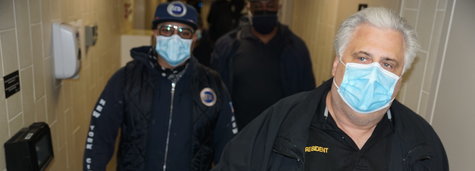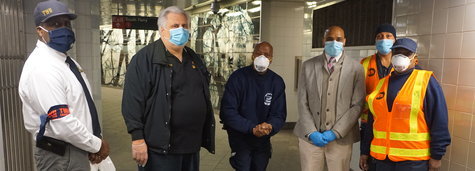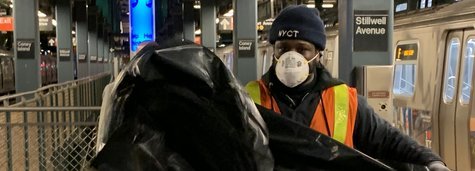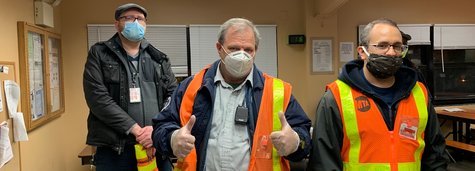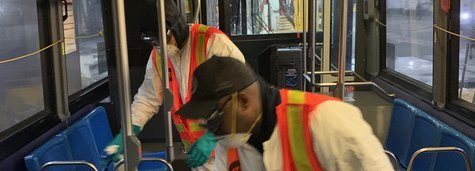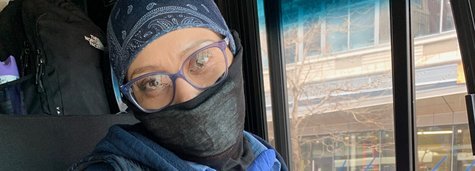Negotiations Resume between Local 100 and the MTA
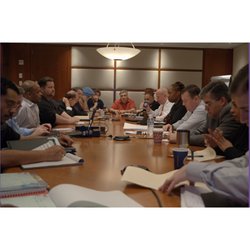
Formal main table negotiations resumed on February 2 at the Union Hall at 1700 Broadway. TWU Local 100’s team, led by President John Samuelsen, continued to maintain that transit workers deserve a raise that keeps pace with increases in the cost of living, so that transit families’ buying power can be maintained. Management re-iterated their interest in part-time bus operators and in finding ways to reduce sick leave usage. Local 100 identified several budget areas which hold surpluses which could be used to restore service cuts and fund wage increases. The union also asked management to join in supporting revenue raising options which would include applying the mortgage recording tax to co-op purchases and extending the tax surcharge that corporations pay to support mass transit to large unincorporated businesses -- such as hedge funds and private equity funds. Local 100 insisted that issues surrounding better treatment for women in transit had to be carved out and given special attention. Management seemed receptive to this demand and we are hopeful of continued progress in providing clean facilities for breaks and safety and security for women in transit. The tone of the negotiations was cool but not confrontational, with Local 100 making several requests for information and management disclosing comprehensive statistics on workforce disciplines and sick leave usage.

